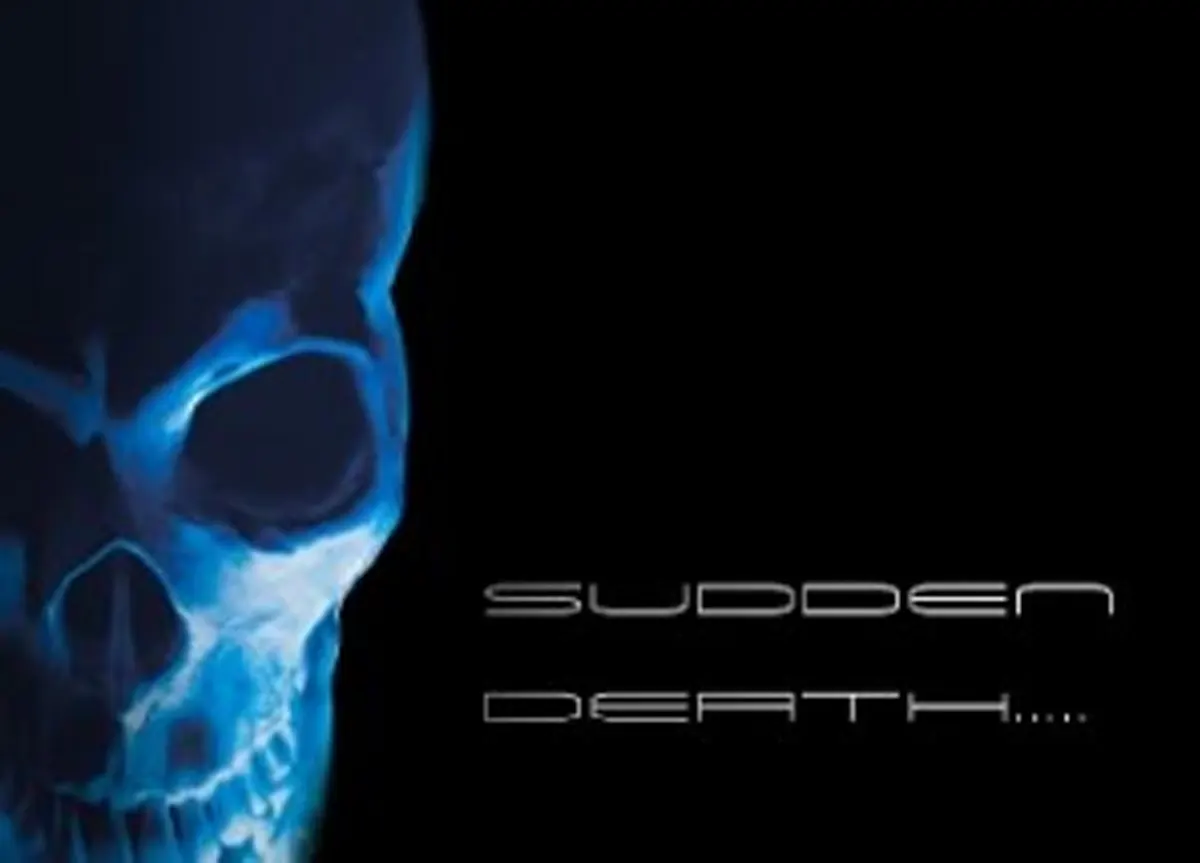Sudden death – Death is said to be sudden or unexpected when a person not known to have been suffering from any dangerous disease, injury or poisoning is found dead or dies within 24 hours after the onset of terminal illness (WHO).
Some authors limit sudden death as those occurring instantaneously or within one hour of onset of symptoms. The incidence is approximately 10 percent of all deaths. No period in life is exempt.
Natural death means that the death was caused entirely by the disease, and the trauma or poison did not play any part in bringing it about.

Causes of sudden death:
Diseases of the Cardiovascular System (45 to 50%):
- Coronary atherosclerosis with coronary thrombosis.
- Coronary atherosclerosis with haemorrhage in the wall causing occlusion of the lumen.
- Coronary artery disease (narrowing and obliteration of the lumen by atherosclerosis).
- Coronary artery embolism.
- Occlusion of the ostium of the coronary artery associated with atherosclerosis or syphilitic aortitis.
- Arterial hypertension with atherosclerosis.
- Rupture of the fresh myocardial infarct.
- Spontaneous rupture of aorta.
- Angina pectoris.
- Pulmonary embolism.
- Systemic embolism occurring in bacterial endocarditis.
- Rupture of aortic or other aneurysm.
- Cardio-myopathies, alcoholic myopathy, asymmetrical hypertrophy of the heart.
- Lesions of the conducting system:fibrosis, necrosis.
- Valvular lesions: aorticstenosis, aortic regurgitation, mitral stenosis, rupture of the chordae, ball-valve thrombus.
- Fatty degeneration of the heart.
- Acute endocarditis.
- Acute myocarditis.
- Acute pericarditis.
- Congenital heart disease in the newborn.
Respiratory System (15 to 23%):
- Lobar pneumonia.
- Bronchitis and bronchopneumonia.
- Rupture of blood vessel in pulmonary tuberculosis with cavitation.
- Pulmonary embolism and infarction.
- Air embolism.
- Influenza.
- Diphtheria.
- Acute oedema of the glottis.
- Acute oedema of the lungs.
- Lung abscess.
- Massive collapse of the lung.
- Pleural effusion.
- Pneumothorax caused by rupture of emphysematous bleb. (14) Neoplasm of the bronchus.
- Bronchial asthma.
- Impaction of foreign body in the larynx and regurgitation of stomach contents into air-passages and bronchioles.
Central Nervous System (10 to 18%):
- Cerebral haemorrhage.
- Cerebellar haeniorrhage.
- Pontine haemorrhage.
- Subarachnoid haemorrhage.
- Cerebral thrombosis and embolisrr..
- Carotid artery thrombosis.
- Brain abscess.
- Brain tumour.
- Meningitis.
- Acute polioencephalitis.
- Cysts of third or fourth ventricle.
- Epilepsy.
Alimentary System (6 to 8%) :
- Haemorrhage into the gastrointestinal tract from peptic ulcer, oesophageal varices, cancer oesophagus, etc.
- Perforation of ulcers, e.g., peptic, typhoid, amoebic or malignant.
- Acute haemorrhagic pancreatitis.
- Strangulated hernia.
- Twisting and intussusception of the bowel.
- Paralytic ileus.
- Appendicitis.
- Bursting of the liver abscess.
- Rupture of enlarged spleen.
- Intestinal obstruction.
- Obstructive cholecystitis.
Genito-urinary system (3 to 5%):
- Chronic nephritis.
- Nephrolithiasis.
- Obstructive hydronephrosis and pyonephrosis.
- Tuberculosis of the kidney.
- Tumours of the kidney or bladder.
- Rupture of ectopic pregnancy.
- Toxaemia of pregnancy.
- Uterine haemorrhage due to fibroids.
- Cancer vulva eroding femoral vessels.
- Twisting of ovary, ovarian cyst or fibroid tumour.
Miscellaneous (5 to 10%):
- Addison’s disease.
- Diabetes mellitus.
- Haemochromatosis.
- Hyperthyroidism.
- Blood dyscrasias.
- Cerebral malaria.
- Shock due to emotional excitement.
- Reflex vagal inhibition.
- Anaphylaxis due to drugs.
- Mismatched blood transfusion.
Sudden death due to epileptic seizures is most likely due to a lethal cardiac arrhythmia induced or propagated by the disorganised neural discharges of seizure. Sudden death can occur without being in a status epilepticus.